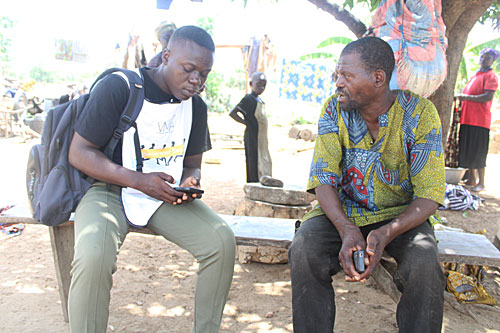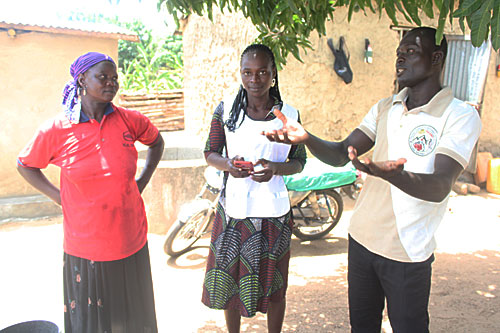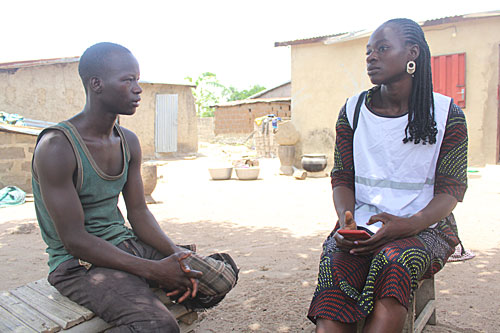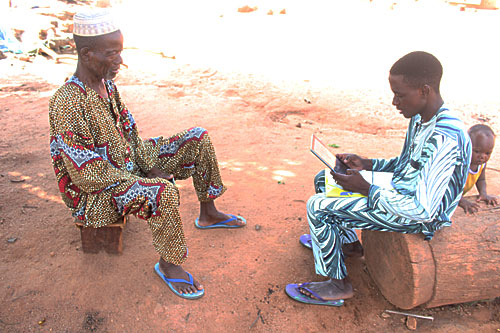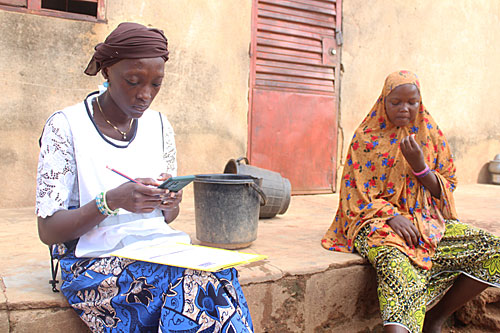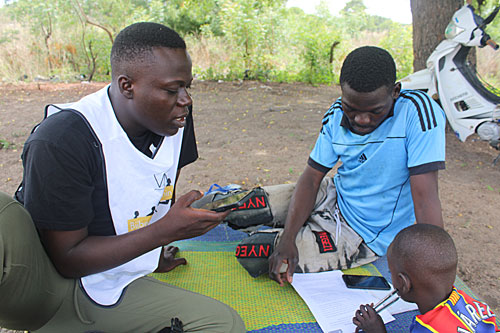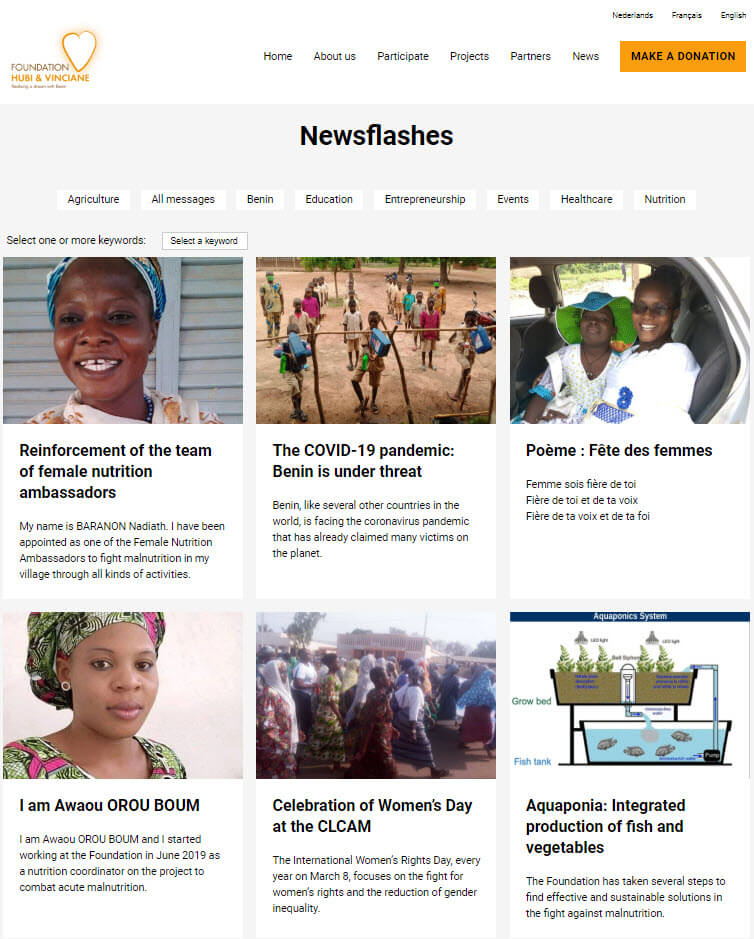Project Noncommunicable diseases (NCDs) – training of project staff and initial survey
With this project, we aim to reduce noncommunicable diseases such as diabetes and high blood pressure. These diseases are major causes of premature deaths worldwide, especially in developing countries such as Benin.
For this project, we are working closely with our partner Louvain Coopération. While we focus on ten villages in the Borgou region, Louvain Coopération concentrates on Mono, further south, and Atacora, further north.
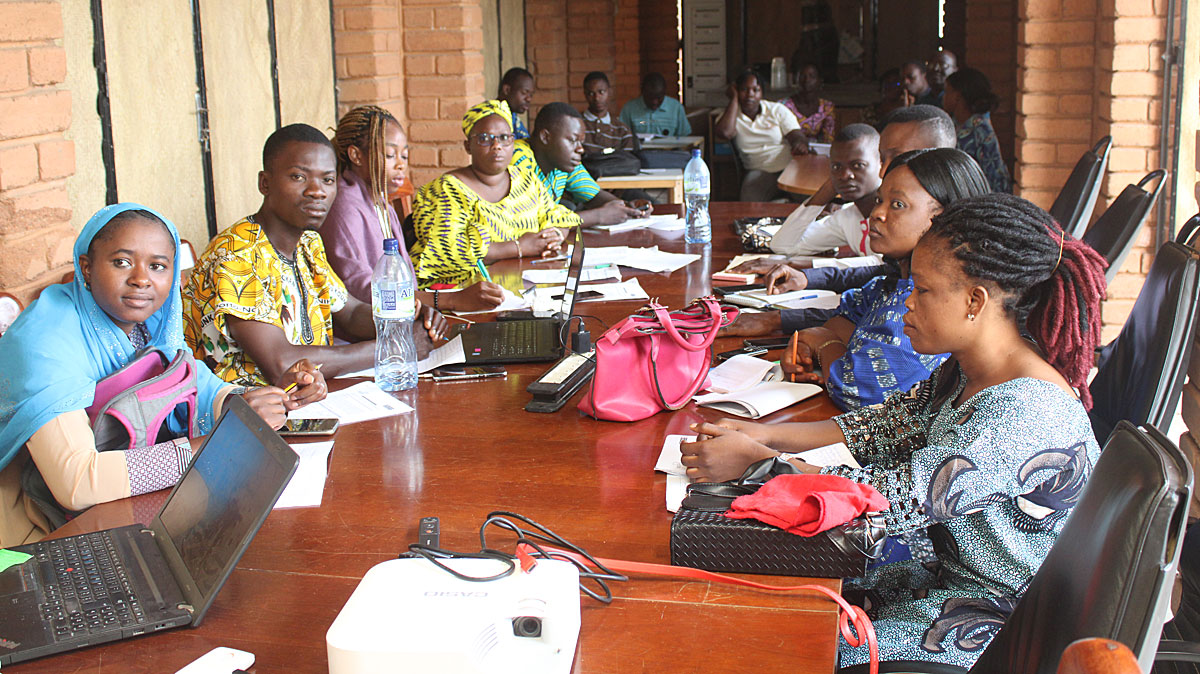
Initially, we wanted to get a picture of the population’s knowledge, attitudes and behaviour regarding NCDs through a large-scale survey. The survey results will then be used as a “baseline measurement.” The intention is to repeat the study at the halfway point and at the end of the project in 2026 to assess the added value of the project.
After several months, Parakou University’s ethics committee finally approved the survey protocol. We recruited twenty staff members for the project. In late April, they were given training at CIAP, the Foundation’s headquarters, by Professor Emmanuel Sambiéni, lecturer-researcher in social anthropology at Parakou University, Dr Alassani Adébayo, physician-diabetologist and Isséré Atcha, statistician-demographer and manager of the study database. The training covered topics and concepts related to noncommunicable and infectious diseases, sampling methodology, surveyors’ manual and compliance with ethical survey standards.
In addition to diabetes and high blood pressure, other non-communicable diseases (cervical, breast, prostate, among others) and communicable or infectious diseases (e.g., sexually transmitted diseases, Covid 19) were also surveyed so that we have the necessary data to take action – if necessary – shortly.
Each project staff member plays a specific role in the research: the fourteen surveyors collect information from households, the two supervisors oversee the quality of the data collected, and the three controllers ensure that the surveyors are accepted in the community and that the principle of selection of households and the target groups to be surveyed within homes is respected. Finally, the database administrator edits the data submitted by the surveyors on the digital platform.
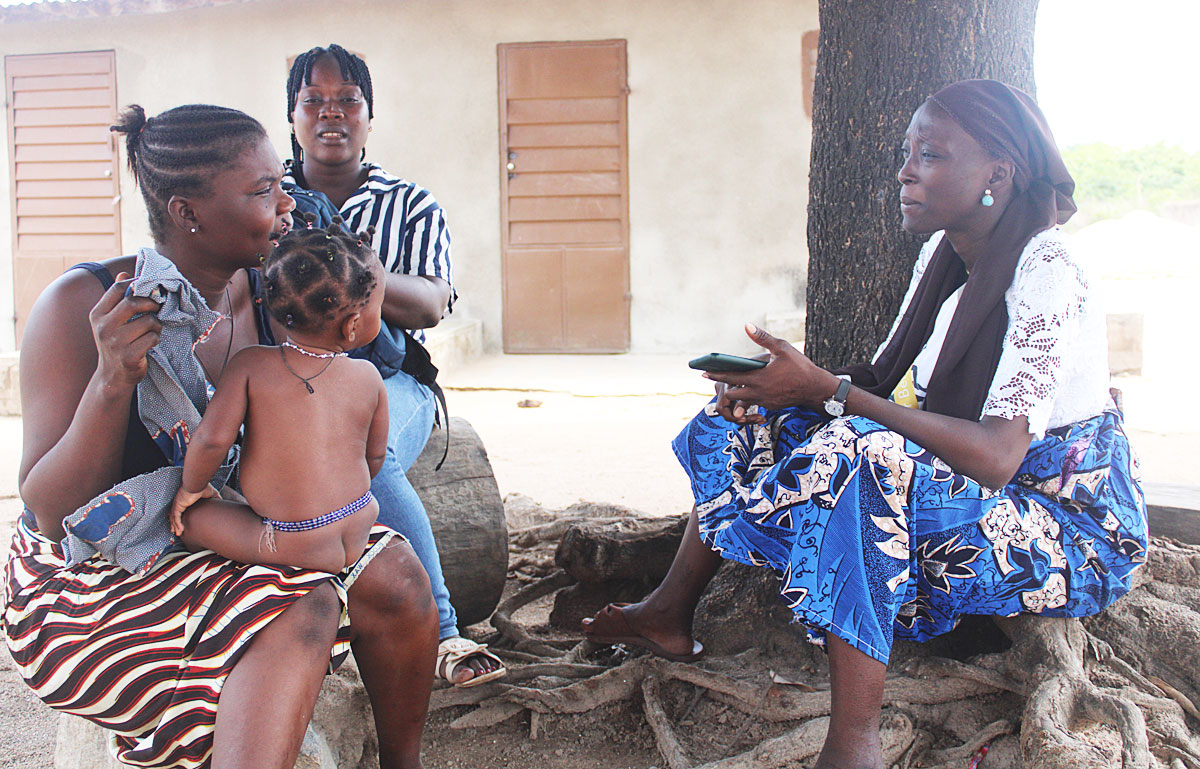
Implementation of the field phase
The survey itself lasted from May 1 to May 8, 2023. The interviewers collected the necessary information from about 30 households in each village using a digital questionnaire. The interviewers always worked in pairs: the husband interviewed the head of the household, and the wife interviewed the mother. The interviewers also interviewed adolescents and young people between 15 and 24.
The field survey is complete, and the database administrator is processing the results.
Photos during the course
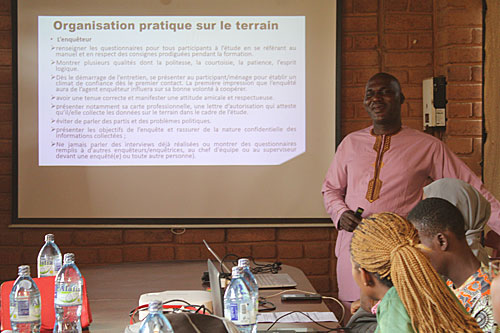
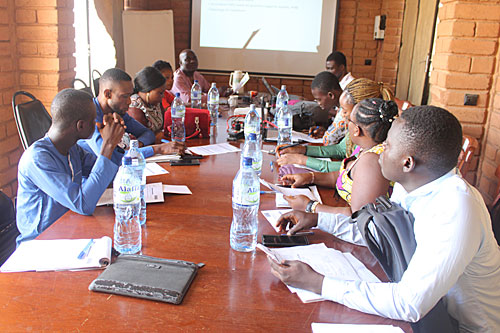
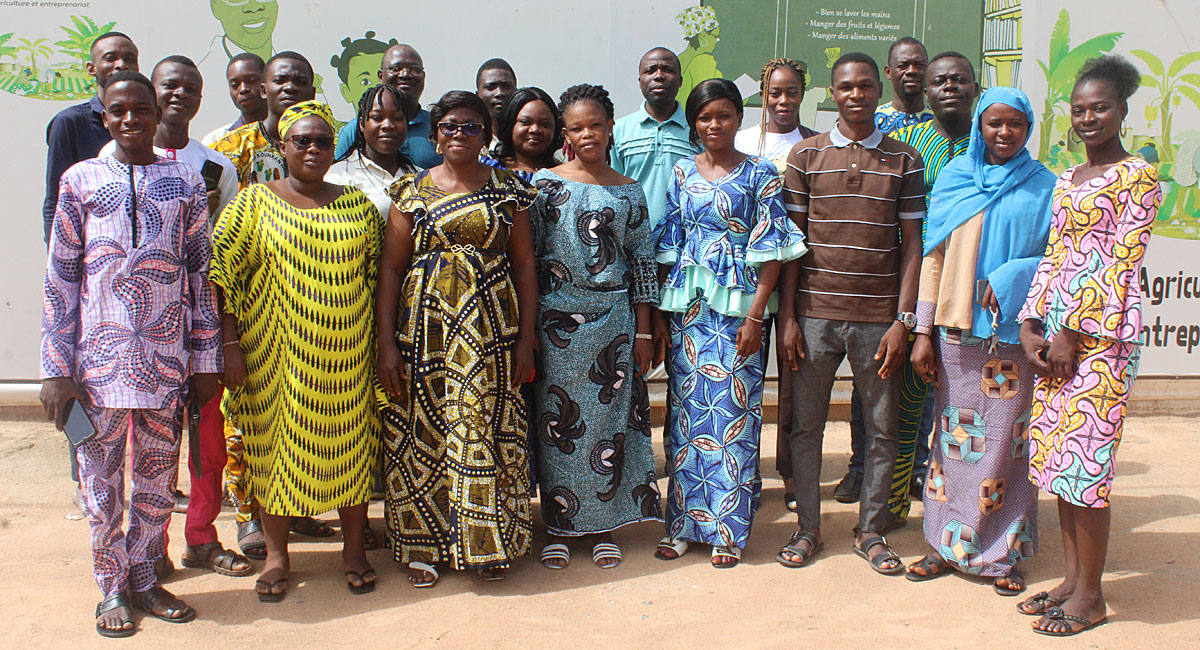
Photos during the field phase
